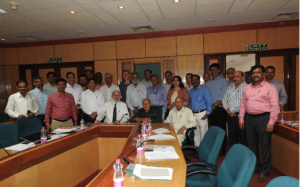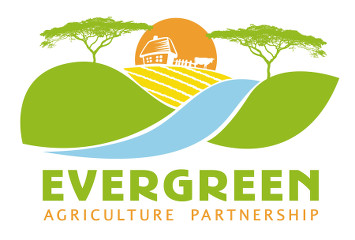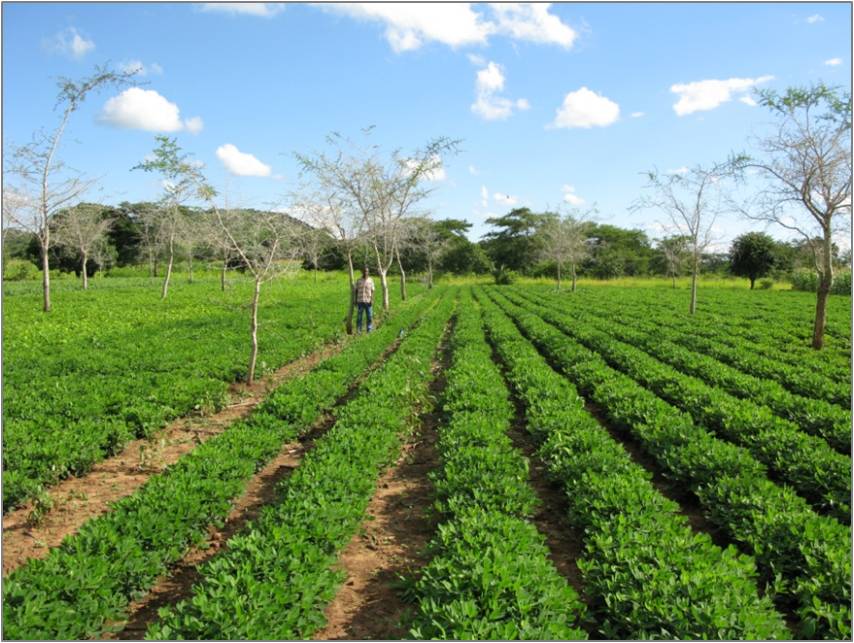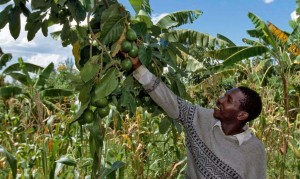 ICRAF’s South Asia Programme and the EverGreen Agriculture Partnership convened a two-day meeting dubbed EverGreening India on 31 August and 1 September 2017, at the NASC Complex, Pusa, New Delhi. This discussion was a follow-up to an initial meeting held in February 2015. The event brought together 40 scientists from the Ministry of Agriculture and Farmers’ Welfare, Government of India, national research institutions, universities, NGOs and international research organizations.
ICRAF’s South Asia Programme and the EverGreen Agriculture Partnership convened a two-day meeting dubbed EverGreening India on 31 August and 1 September 2017, at the NASC Complex, Pusa, New Delhi. This discussion was a follow-up to an initial meeting held in February 2015. The event brought together 40 scientists from the Ministry of Agriculture and Farmers’ Welfare, Government of India, national research institutions, universities, NGOs and international research organizations.
Prof. MS Swaminathan, patron of the concept of launching an evergreen revolution in India, was the chief guest and keynote speaker. He shared histhoughts on “From Green to Nutrition Revolution,” emphasizing that EverGreen Agriculture and Agroforestry are one of the ways to make the country free from malnutrition. In his talk, he showcased the importance of creating a) Genetic garden of biofortified crops, b) Culinary diversity, and c) Globally Important Agricultural Heritage Sites (GIAHS) in the country. The talk was concluded with the thought that in order to make the technologies and innovations sustainable, it is essential that the social engineering aspects of programme design and implementation, are given due attention.
Other presenters drawn from the EverGreen Network, the Government of India, national and international research institutions, ICRAF South Asia and other NGOs discussed the current implementation status of key elements in the National Agroforestry Policy and the recently launched National Agroforestry Mission in India. They also covered the potential of farmer-managed natural regeneration (FMNR), land rehabilitation, the wadi system, policy and different agroforestry systems in major ecologies in the country.
The group deliberated on the possibility of accelerating the scaling up of agroforestry in India, with emphasis on EverGreen Agricultural practices, including FMNR, and the creation of a major national agroforestry movement, through EverGreening India, that would build upon and synergize the strengths of the development and research communities, government and the private sector.
The participants formed four sub-groups; 1) Policy land rehabilitation and mapping, 2) Agroforestry models in five major ecologies, value chain, nursery and extension systems, 3) FMNR, 4) Communications. The group strongly felt the need for creating or identifying the champions for mainstreaming the scaling up of agroforestry.




